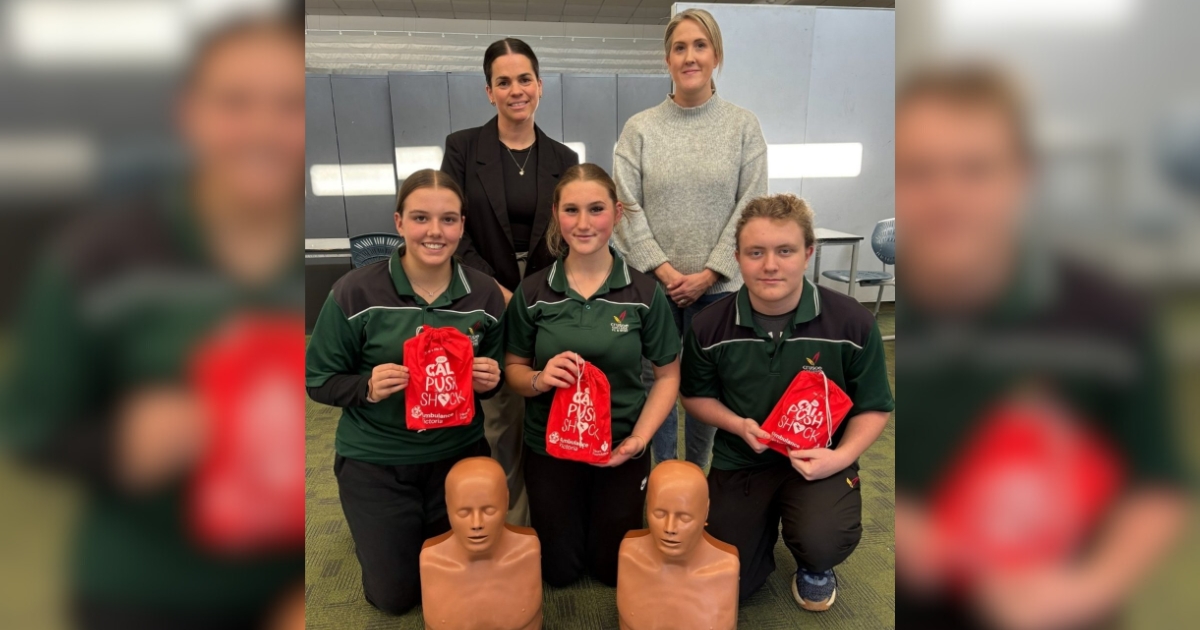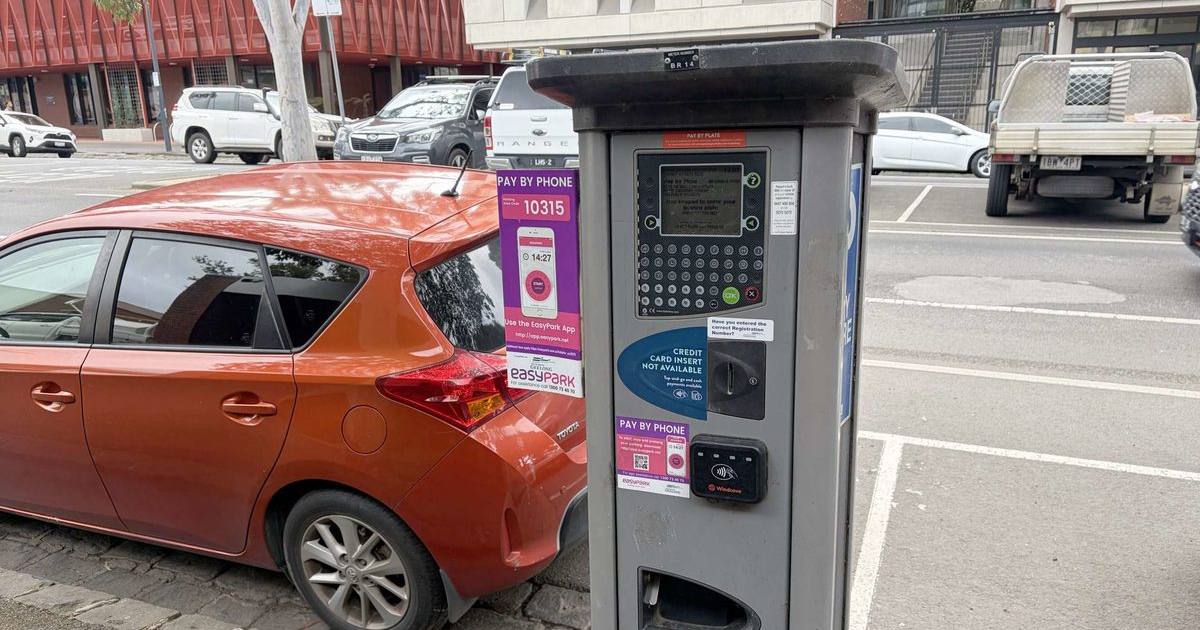Ambulance Victoria helps kids save lives

Kids Save Lives aims to improve cardiac arrest survival rates by showing students in Year 7 to Year 10 how to do cardiopulmonary resuscitation and use an automated external defibrillator. Photo: AMBULANCE VICTORIA/FACEBOOK
AMBULANCE Victoria’s Kids Save Lives program has been expanded, offering life-saving CPR skills to even more Victorian students.
All schools are being encouraged to sign up.
The Australian-first program has been developed by Ambulance Victoria for teachers to deliver, and aims to improve cardiac arrest survival rates by showing students in Year 7 to Year 10 how to do cardiopulmonary resuscitation (CPR) and use an automated external defibrillator (AED).
Last year, Ambulance Victoria paramedics responded to 7,545 out of hospital cardiac arrests.
While Victoria has one of the best cardiac arrest survival rates in the world, about 20 Victorians suffer a cardiac arrest every day but only one in 10 people survive.
About 80 per cent of Victorian cardiac arrests occur in residential settings.
Ambulance Victoria executive director of regional operations Danielle North said it was important that both adults and young people knew CPR and how to use an AED.
“Our Kids Save Lives program contains essential learning and life-saving skills.
“Students will not only be able to share their knowledge with friends and family, but also with their wider community.
“We hope this training will help save many Victorian lives.”
Through Kids Save Lives, students are taught to recognise when someone is in cardiac arrest and to learn the three simple steps of Call (call Triple Zero 000), Push (perform CPR) and Shock (use an AED).
The program is conducted in partnership with the Heart Foundation, Monash University, Australian Resuscitation Council, Department of Education and Training, and Heart of the Nation.
It was established by original Yellow Wiggle Greg Page, who survived a cardiac arrest in January 2020.
More than 5,300 students from 35 schools have already enrolled in the expansion pilot program.
The World Health Organisation (WHO) recommends starting CPR training for children as early as age 12, and ideally, annually.
Victorian teachers interested in learning more about the free of charge Kids Save Lives program can email [email protected]

















